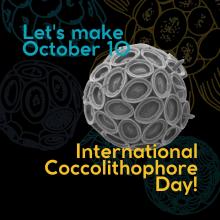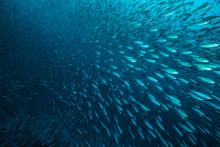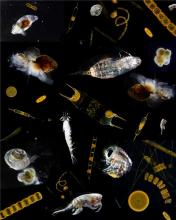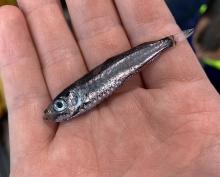Ocean Visions released the draft Phytoplankton Carbon Solutions report on 30 September. Further details can be found here including links to…

Image: Campaign visual celebrating International Coccolithophore Day, combining an original coccolithophore illustration with a field photograph and clean graphic design for public outreach.
Credit:…

Image: A huge school or "bait ball" of sardines.
New research led by scientists from the Woods Hole Oceanographic Institution in collaboration with scientists from a number of institutes has…
2-4 March 2026, Glasgow, UK
The workshop is planned to take place immediately after Ocean Sciences 2026.
…

Plankton powerhouses are under the spotlight in a newly published BioScience article authored by an international group of scientists including Prof Alex Poulton of Heriot-Watt University and BIO-…
There are a number of sessions at the upcoming Ocean Sciences Meeting, due to be held in Glasgow from 22-27 February 2026, that are relevant to BIO-Carbon research. Below are links to the session details. Abstracts can be submitted directly from…
NERC have just released pre-announcements for the final round of BIO-Carbon funding, to open in spring 2026. Stage 2 is planned to build on the results emerging from the earlier stages of the programme, to apply this new knowledge to how we…
As part of the UK NERC BIO-Carbon research programme, with the support of the Marine Biogeochemistry Forum from the Marine Alliance for Science and Technology for Scotland (MASTS -…

Image: Mesopeglaic fish (credit: Jethro Reading)
A recent study shed light on how mesopelagic fish help move carbon from the surface to the deep ocean. Led by the University of…